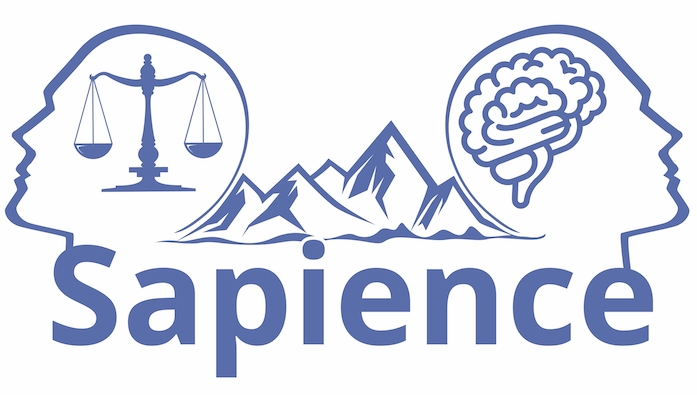Behavioral Health
We provide a variety of evidence-based psychological services from one-on-one psychotherapy to in depth psychological testing for a number of presenting problems across the life-span.
Treatment Services
Community Psychology Services
Sapience Practice harnesses resources in the community to promote excellence in clinical care, teaching, research, system improvements and innovation for underserved and vulnerable populations with serious mental illness.
Adult Outpatient Psychology Services
Sapience Practice provides individual, couples, family, and group therapy and counseling services. We aim to provide a space that facilitates individual growth, healing, and psychological health through our expertise and collaborative approach.
Psychotherapy
Individual Therapy Options
- Couple/Relationship Therapy
- Family/Child Therapy
- Cognitive Behavioral Therapy
- Mindfulness Therapy
- Substance Abuse Treatment
- Anger Management
Outpatient Child and Adolescent Psychology Service
Outpatient Child and Adolescent Psychology Service provides evaluation and treatment of children/adolescents with the full spectrum of psychiatric conditions and behavioral or emotional difficulties in an outpatient setting. In addition, Sapience Practice assesses students and children ages 2 to 22 who have developmental difficulties and consults with their parents, teachers, and care providers.
Assessments
Disability Evaluations
Those who file for Short Term Disability or Social Security Disability with an alleged mental condition (physical and mental impairments listed on disability applications are classified as “allegations” until the examiner has decided the claim) are often sent for a mental consultative examination (CE).
Mental consults are like physical consultative exams in that they are used by disability examiners to help establish the claimant’s current medical state. Oftentimes, it is the case that those with mental disorders have received little if any medical treatment for their condition, so it’s difficult for a disability examiner to determine the nature and scope of the impairment and how it affects the claimant’s ability to work.
Neuropsychological Evaluations
Neuropsychological evaluation is an assessment of how one’s brain functions, which indirectly yields information about the structural and functional integrity of your brain. The neuropsychological evaluation involves an interview and the administration of tests. The tests are typically pencil and paper type tests. Some tasks might be self-reports meaning that they are completed by the patient with assistance from a technician, but the majority of the tests require administration by a neuropsychologist or trained, skilled psychometrist.
Neuropsychological tests (unlike bedside cognitive and behavioral neurologic screens) are standardized, meaning that they are given in the same manner to all patients and scored in a similar manner time after time. An individual’s scores on tests are interpreted by comparing their score to that of healthy individuals of a similar demographic background (i.e., of similar age, education, gender, and/or ethnic background) and to expected levels of functioning. In this way, a neuropsychologist can determine whether one’s performance on any given task represents a strength or weakness. Although individual scores are important, the neuropsychologist looks at all the data from the evaluation to determine a pattern of cognitive strengths and weaknesses and, in turn, to understand more about how the brain is functioning.
Neuropsychological tests evaluate functioning in a number of areas including: intelligence, executive functions (such as planning, abstraction, conceptualization), attention, memory, language, perception, sensorimotor functions, motivation, mood state and emotion, quality of life, and personality styles. The areas addressed in an individual’s evaluation are determined by the referral question (what the referring doctor and patient wants to know), patient’s complaints and symptoms, and observations made during interview and test administration.
Attention-Deficit/Hyperactivity Evaluations (Child/Adult)
This evaluation entails the assessment of a client’s ADHD-related behaviors in determining whether he/she meets the detailed diagnostic criteria for ADHD and corresponding ADHD subtypes. A specific emphasis is also placed on determining whether the client meets the diagnostic criteria for comorbid diagnoses of Conduct Disorder and Oppositional Defiance Disorder. This evaluation also includes a general assessment of the client’s emotional functioning and personality.
Dementia & Cognitive Evaluations
This evaluation entails the assessment of a client’s detailed cognitive and intellectual abilities, weaknesses, and strengths in order to determine the presence of dementia-related deficits. This evaluation also includes a general assessment of the client’s emotional functioning and personality.
Substance Abuse/Dependence Evaluations
A psychological evaluation will identify dependency disorders, treatment recommendations, and treatment progress. They will include the defendant’s lifetime conviction history, relapse history, psychological assessments for substance abuse, lifetime treatment history for alcohol and/or drug abuse, support group history, clinical analysis and observations, diagnostic impressions, client prognosis, and continuum of care/recommendations.
Chronic Pain and Injury Related Evaluations
This evaluation entails the assessment of a client’s emotional functioning, personality, and behavioral functioning as related to his/her chronic pain issues. A specific emphasis is also placed on determining whether the client meets the detailed diagnostic criteria for a Somatization Disorder and other comorbid psychological disorders related to chronic pain issues.
Behavioral Medicine Evaluations
This evaluation entails the assessment of a client’s emotional functioning, personality, and health-related behaviors necessary in determining his/her level of appropriateness for surgical interventions or other other medical procedures.
Consultations
Parents often have questions regarding educational, developmental, and/or adjustment issues that do not necessarily require answers through testing. There are also occasions when results of previous evaluations should be reviewed in order to make current decisions about the student. Our staff is pleased to meet with parents to address their individual concerns.
Adults, including college students, also have questions about learning, attention and concentration, and emotional issues. Consultations are arranged to address each concern and to make recommendations for appropriate intervention.
As part of our ongoing support system, we offer school consultations with teachers, counselors and administrators. This provides the individual student with a powerful, coordinated educational and clinical approach that facilitates and integrates the student’s learning and emotional growth.
